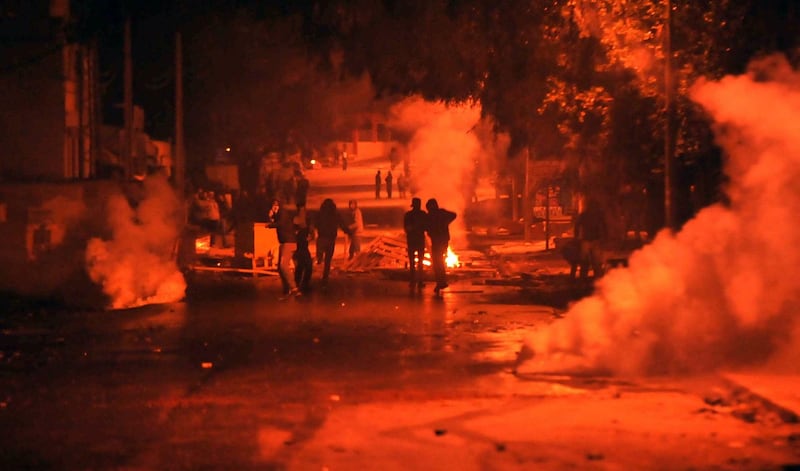Seven years ago this week, Zine El Abidine Ben Ali, the then president of Tunisia, fled the country. Tunisia not only emerged relatively unscathed from the mass protests that engulfed the land in January 2011, it even made the difficult transition to democracy. Tunisians elected a new president in the first free elections in their nation's history. Against the distressing backdrop supplied by the chaos in Libya and the slaughter in Syria, Tunisia sparkled: a cause for hope in a time of hopelessness.
That enviable stability is now under siege by a fresh wave of popular protests that began on January 1, when a new finance law passed as part of the 2018 budget by the government of prime minister Youssef Chahed went into effect. The new year began for Tunisians with a rise in taxes and a hike in prices for everything from fruits and vegetables to housing and gasoline. In an economy where the minimum wage ($150) falls way short of even a small family’s average monthly cost of living (estimated to be around $240) – and where unemployment is above 15 per cent – a sudden rise in prices, coupled with a squeeze on incomes, was bound to provoke unrest.
__________________
Read more
[ Tunisia unrest: 200 arrested and dozens hurt ]
[ Seven years after revolution, why are Tunisians still setting themselves on fire? ]
[ Tunisia PM promises end to economic hardship after clashes ]
__________________
Some 200 Tunisians have been arrested since protests began on January 1. Yet there seems to be no resolution in sight. There were protests on Wednesday night in Tunis, the capital, and several other cities across the country. At least one person has been killed in clashes and there have been instances of looting. Tunisia, while not unique in witnessing a backlash to austerity measures (Greece still bears the scars of anti-austerity rioting), is also a distinctive case because of its recent history. The stability of the country will be compromised if the state becomes the object of popular rage.
The Tunisian government has adopted the new financial measures at the urging of the International Monetary Fund. By burdening a country that is just beginning to recover from a popular uprising with evidently unrealistic economic performance demands, the IMF risks undoing the progress Tunisia has already made. Lest we forget, it was an IMF-imposed austerity programme that triggered riots across the country in 1984. It is time, perhaps, to learn from the mistakes of the past.
Follow The National's Opinion section on Twitter





